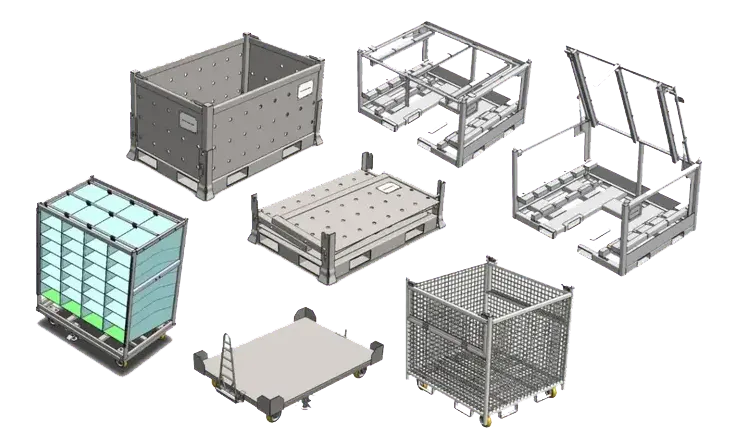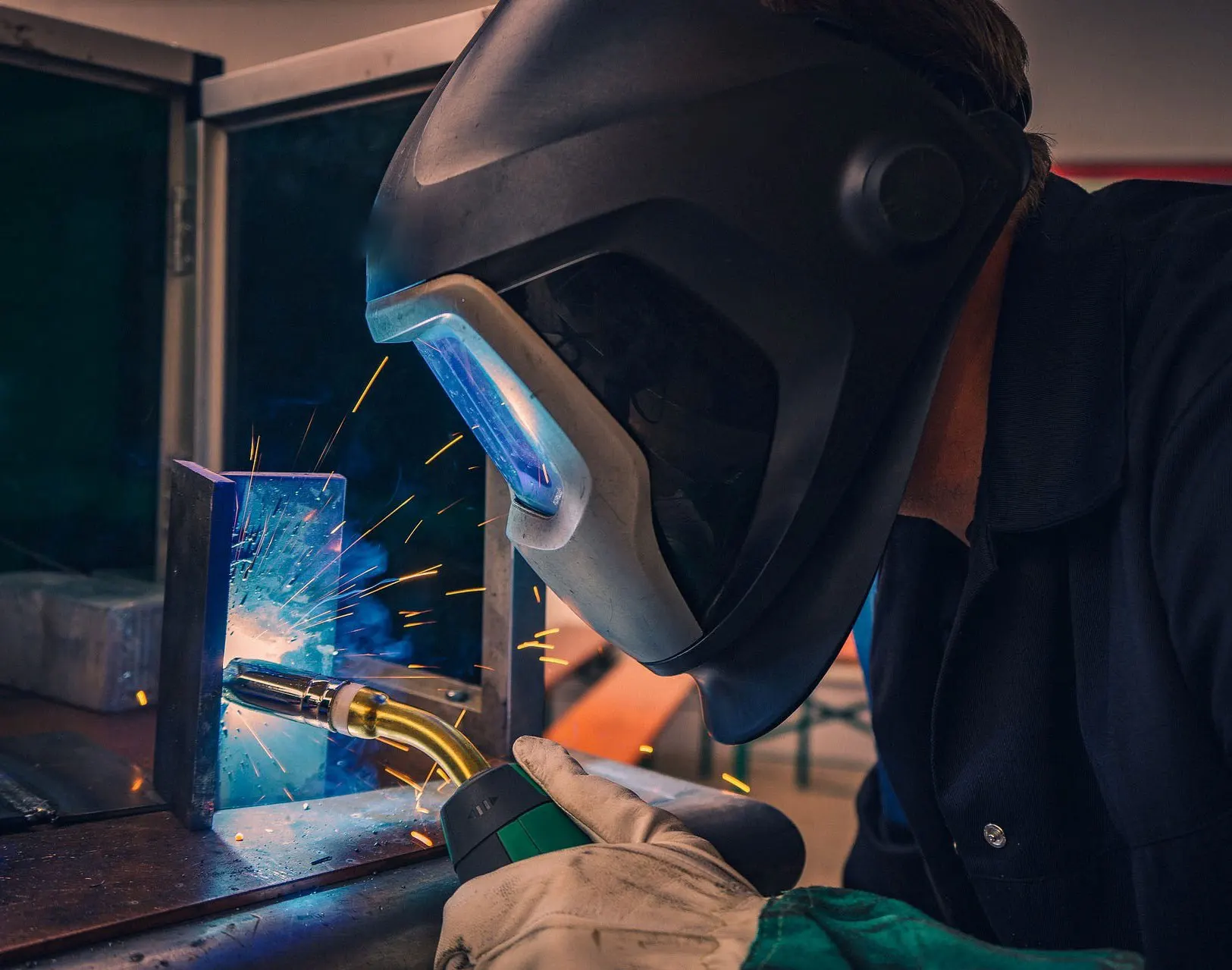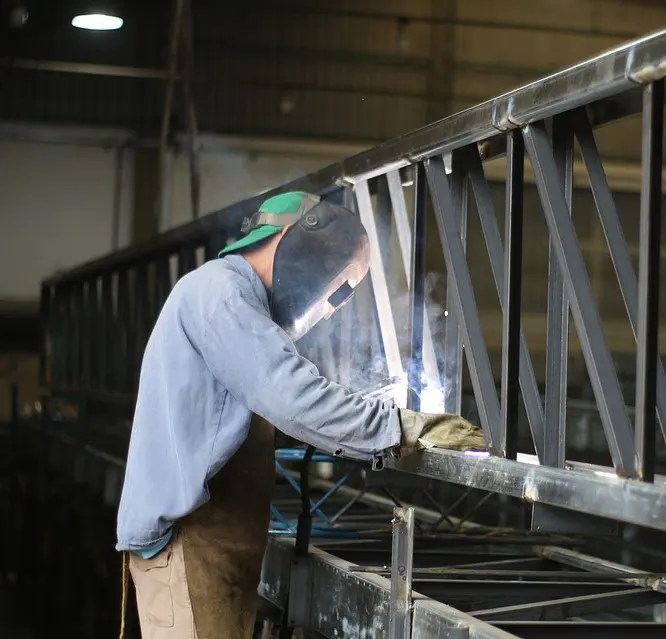Explore innovative designs, practical applications, and the numerous benefits of utilizing a wine barrel rack for your facility.
Read MoreFull Custom Fabrication: Engineering Products to Precision
What is full custom fabrication?
A formal definition of full custom fabrication: Full custom fabrication is a manufacturing process that involves creating products from raw materials according to specific and unique designs. It surpasses conventional manufacturing techniques by giving individuals or companies total control over the entire process, from ideation to completion. With this fabrication method, the possibilities are limitless, enabling the creation of one-of-a-kind products that align perfectly with individual preferences and requirements.
Understanding the process of full custom fabrication: The process of full custom fabrication typically starts with an idea or concept. To make a vision a reality, the individual or company looking for a custom product works with designers, engineers, and fabricators. Ultimately, this involves conceptualizing and planning the project, selecting the appropriate materials and tools, fabricating the product, refining and polishing the final piece, and testing its functionality and quality.
The benefits of full custom fabrication: Full custom fabrication offers a range of benefits. Firstly, it allows for the creation of unique and personalized products that cannot be replicated elsewhere. Also, it provides the opportunity to exercise creative freedom and bring innovative ideas to life. Additionally, this fabrication style allows for precise customization according to individual specifications, ensuring the end product meets all desired criteria. This manufacturing approach also lessens the need for mass production and waste, which contributes to sustainability. All things considered, custom fabrication offers a personalized and unique experience to individuals looking for something genuinely unique.

Importance of full custom fabrication
Full custom fabrication holds significant importance in various industries and for individuals seeking personalized products. By opting for this fabrication process, individuals can stand out from the crowd and express their individuality. Essentially, this fabrication system ensures that the end product perfectly aligns with the customer’s vision and preferences.
In a business context, custom fabrication enables companies to offer unique and exclusive products that differentiate them from competitors. By embracing custom fabrication, businesses can cater to niche markets and attract customers who value individuality and customization. This method also promotes creativity and innovation throughout sectors, pushing the boundaries and challenging traditional manufacturing practices.
Furthermore, full custom fabrication promotes sustainable manufacturing practices. Focusing on customized production reduces the requirement for mass production and its associated waste. This manufacturing approach provides for a more efficient use of resources and decreases environmental impact, making it an appealing option for people seeking environmentally responsible solutions.
Types of full custom fabrication
Full custom fabrication is a broad field and encompasses various types of manufacturing processes. Some common types of fabrication include:
-
Metal Fabrication: This involves working with various metals, such as steel, aluminum, or copper, to create unique and personalized products. In addition, metal fabrication techniques include cutting, bending, welding, and finishing processes.
-
Woodworking: Woodworking allows for the creation of custom furniture, cabinets, and decorative items. This process involves cutting, shaping, and assembling wood pieces to achieve the desired design.
-
Plastic Fabrication: Plastic fabrication includes processes such as injection molding, vacuum forming, and 3D printing. Also, it allows for the production of custom plastic products, such as prototypes, packaging, and consumer goods.
How does full custom fabrication work?
Full custom fabrication involves a step-by-step process that spans from concept to completion. Here is an overview of how fabrication works:
-
Conceptualize and plan your custom project: The process begins with brainstorming and sketching out concepts for the desired product. After all, this step is critical for visualizing the end result and determining functional requirements.
-
Choose the right materials and tools: Selecting the right materials and tools is critical for getting the intended outcome. When deciding on materials, consider practicality, aesthetics, durability, and budget.
-
Begin the fabrication process: With the design and materials in place, the manufacture process may begin. This includes cutting, shaping, connecting, and assembling the selected materials to bring the concept to reality.
-
Refine and polish your custom product: Once the fabrication is complete, the product undergoes refinement and polishing to achieve a high-quality finish. Essentially, this includes processes such as sanding, painting, polishing, and applying protective coatings.
-
Testing and quality assurance: The final phase entails thorough testing and quality assurance to guarantee that the unique product fulfills all specifications and standards. Ultimately, this will involve testing for durability, functionality, and performance.

Full custom fabrication tools and equipment
Full custom fabrication requires a range of tools and equipment depending on the specific manufacturing processes involved. Some common tools used in fabrication include:
- Cutting tools: This may include saws, shears, plasma cutters, or laser cutters for accurately cutting various materials.
- Shaping tools: These tools enable the shaping and forming of materials. Examples include routers, lathes, or CNC machines.
- Joining tools: Joining tools, such as welding machines, riveters, or adhesives, are used to create structural connections between different parts.
- Finishing tools: Finishing tools, such as sanders, polishers, or spray guns, aid in achieving a smooth and refined surface finish.
- Testing tools: These tools may include measuring instruments, such as calipers and micrometers, as well as equipment for assessing durability and performance.
The particular tools and machinery required will vary depending on the materials and fabrication techniques selected. After all, purchasing high-quality tools is essential if you want to guarantee accuracy and excellence in the finished result.
Full custom fabrication strategies and best practices
To excel in the area of fabrication, it is essential to follow certain strategies and best practices. These include:
-
Effective communication: Understanding needs and expectations throughout the process depends on designers, engineers, fabricators, and customers having open and honest communication.
-
Collaboration: Encourage the development of a cooperative atmosphere where professionals from many domains cooperate to realize concepts. As a result, this makes it possible to incorporate various perspectives and levels of experience.
-
Attention to detail: Paying attention to even the slightest details can dramatically improve the finished product. Generally, quality craftsmanship and precision are essential for achieving a high-quality finish.
-
Continuous learning and innovation: Staying updated with the latest trends, technologies, and techniques in fabrication is crucial for continuous improvement and innovation.
-
Embracing sustainability: Adopting sustainable methods encourages environmental care and is in line with current manufacturing trends. Examples of these activities include employing eco-friendly products, cutting waste, and recycling.
By incorporating these strategies and best practices, full custom fabrication can be optimized to deliver exceptional results and meet customer expectations.

Conclusion
Full custom fabrication offers a unique and personalized approach to manufacturing. It enables individuals and corporations to build one-of-a-kind products that precisely match their preferences and requirements. This process involves designing, engineering, and fabricating products from scratch, resulting in endless possibilities and complete control over the final outcome.
Whether for personal use or business purposes, fabrication provides an opportunity to stand out, express individuality, and offer exclusive products. By following best practices, utilizing the right tools and equipment, and embracing sustainability, the full custom fabrication process can deliver exceptional results and cater to the growing market demand for customization and personalization.

Customize Your Own & Get a FREE Estimate!
Simply e-mail us at sales@plexformps.com with all your information
OR call us today & speak to one of our packaging professionals









